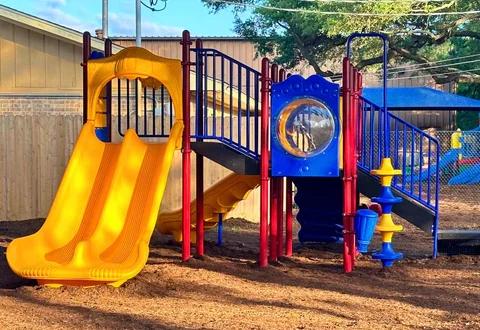Introduction – Why child care is more than just supervision
Child care is more than just looking after kids while their parents are gone. It’s also about building emotional intelligence and preparing children for the future. Early childhood is a window of opportunity for a child, and the choices they make can have a lasting impact on their future.
1. Early Childhood Development: The Science Behind It
The brains of children develop rapidly from birth until age five. During this period, children:
- The brain forms millions of connections every second
- Learn to speak, empathize, and use motor skills
- Develop emotional bonds and social behaviour
The best child care promotes these aspects by providing structured education, loving relationships and opportunities for creative expression.
2. What is excellent child care?
The hallmarks of exceptional care are:
FeaturesDescription
Safety: A clean, safe environment with emergency plans and child-proofing.
Nurturing caregivers: Warm and responsive adults who talk to, listen to, and play with your children
Developmental Activities Storytelling, crafts, games and songs for children of all ages
Healthy Nutrition: Balanced snacks and meals to support mental and physical growth
Routines and Structure Children feel more secure when they have predictable schedules
3. What are the different types of child care?
Every family has its own unique needs. Here are some of the most popular options:
- In-Home Nannies: Personalized care at your home is often more flexible.
- Family Child Care Homes: Small groups in the home of a caregiver, providing a comfortable environment.
- Child Care Centers are licensed facilities that have trained staff and offer structured learning. They also encourage social interaction.
- Montessori-inspired schools: Designed to promote creativity and self-directed learning.
4. How to choose the right childcare provider
Make the right choice by following these smart steps:
. Visit several centres to observe the staff’s interaction with children. Check for safety protocols, licenses and certifications. Ask about turnover of caregivers — consistency builds trust
. Check for daily updates, photos, or progress reports shared with parents. See how engaged and happy the children are.
Red Flag: Consider other options if children appear bored, unsupervised or scared.
5. Parent-Caregiver Partnership
Communication between parents and caregivers is key to good child care. Here are some tips on how to create a strong partnership.
- Share your child’s routines, preferences and habits.
- Talk about milestones and concerns.
- Attend open houses or parent meetings.
- Celebrate your child’s achievements together.
When caregivers and parents work together, children flourish!
6. Create Your own learning space for child care at home
You can still create a rich, nurturing environment for your child, even if they are at home.
- Reading regularly — Books build vocabulary and imagination
- Playing music and singing songs
- Safe objects for sensory play
- Encourage pretend play by using costumes or toy cooking
7. The Emotional Aspect of Child Care
Children need more education than just academics. Find caregivers with experience in teaching:
- Empathy (e.g., sharing, kindness)
- Self-regulation (e.g., calming down, expressing feelings)
- Confidence
The importance of emotional intelligence is as great as the importance of learning to read or count.
Conclusion – Every Moment Counts
Child care is a powerful investment in the future of your child. It doesn’t matter if it is a loving nanny, an energetic preschool or a routine at home. What matters most are love, attention and learning. Every child can be a star with the right care.





